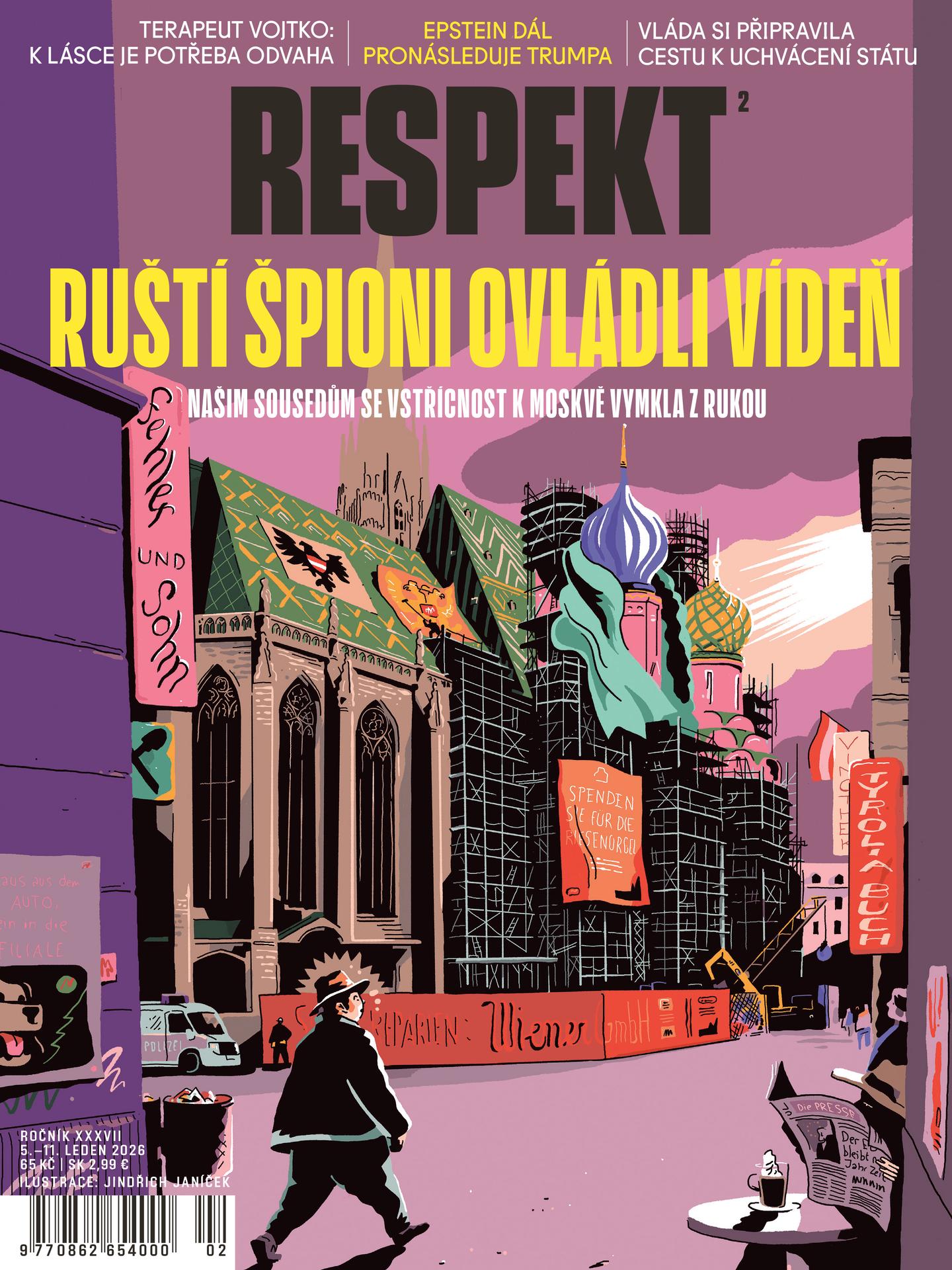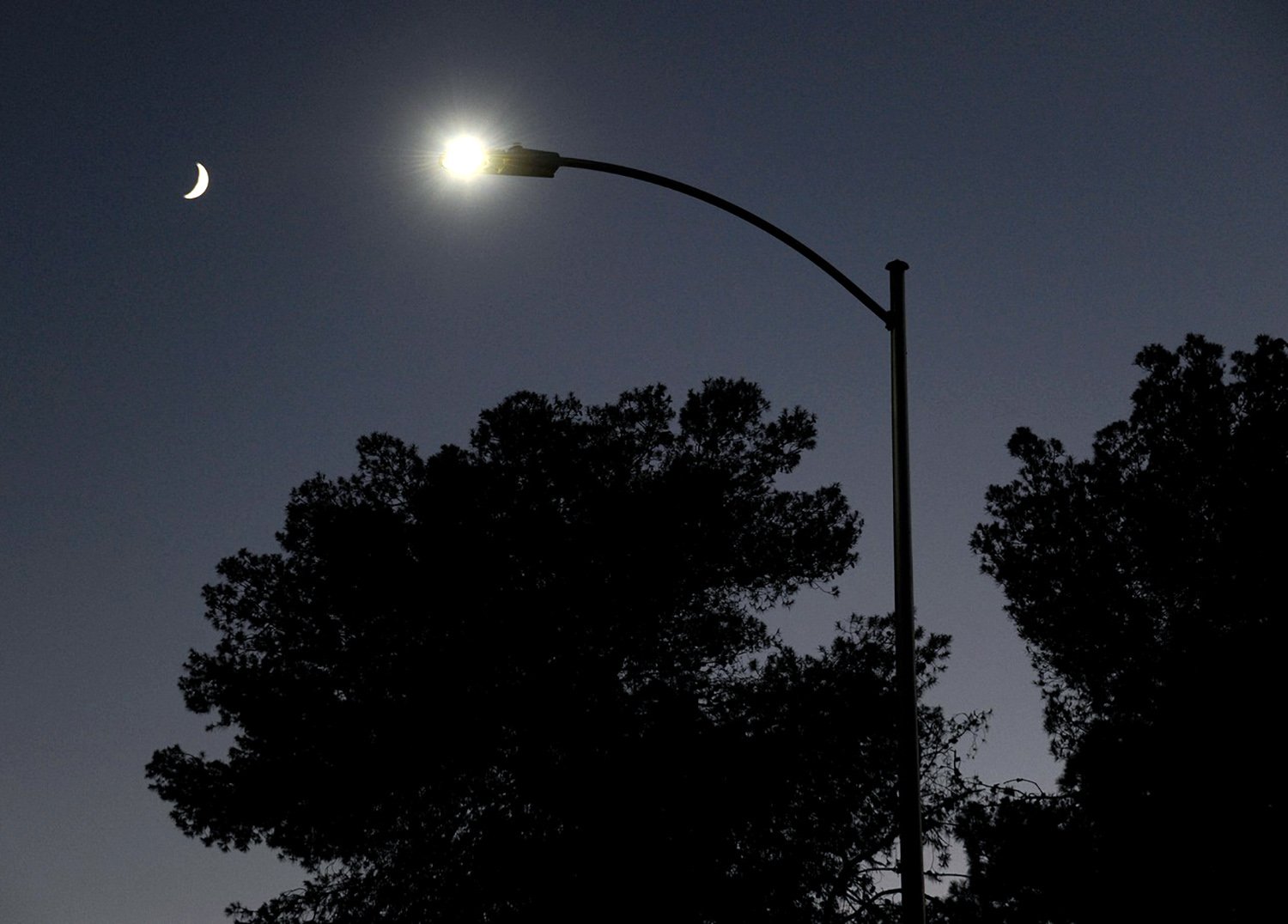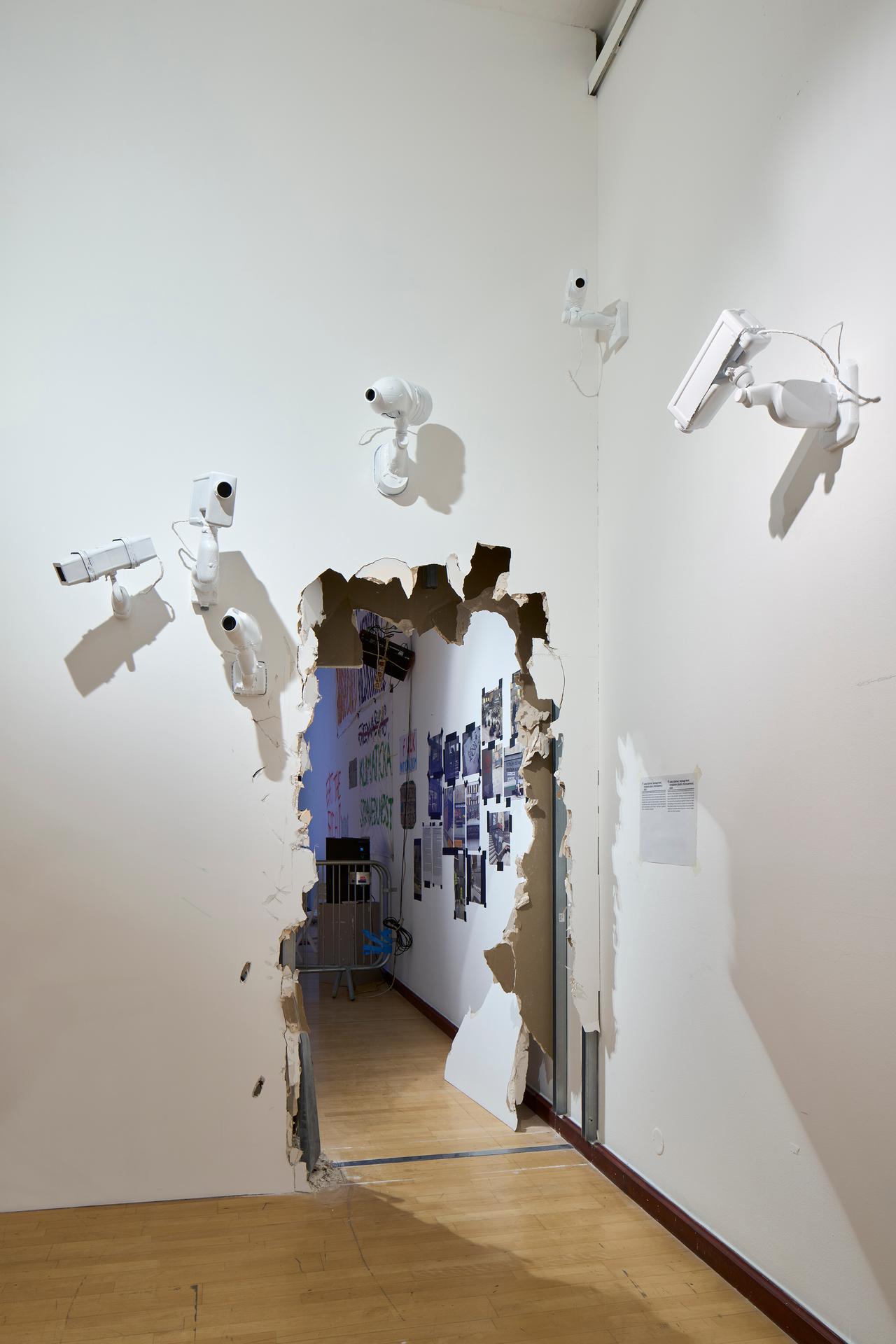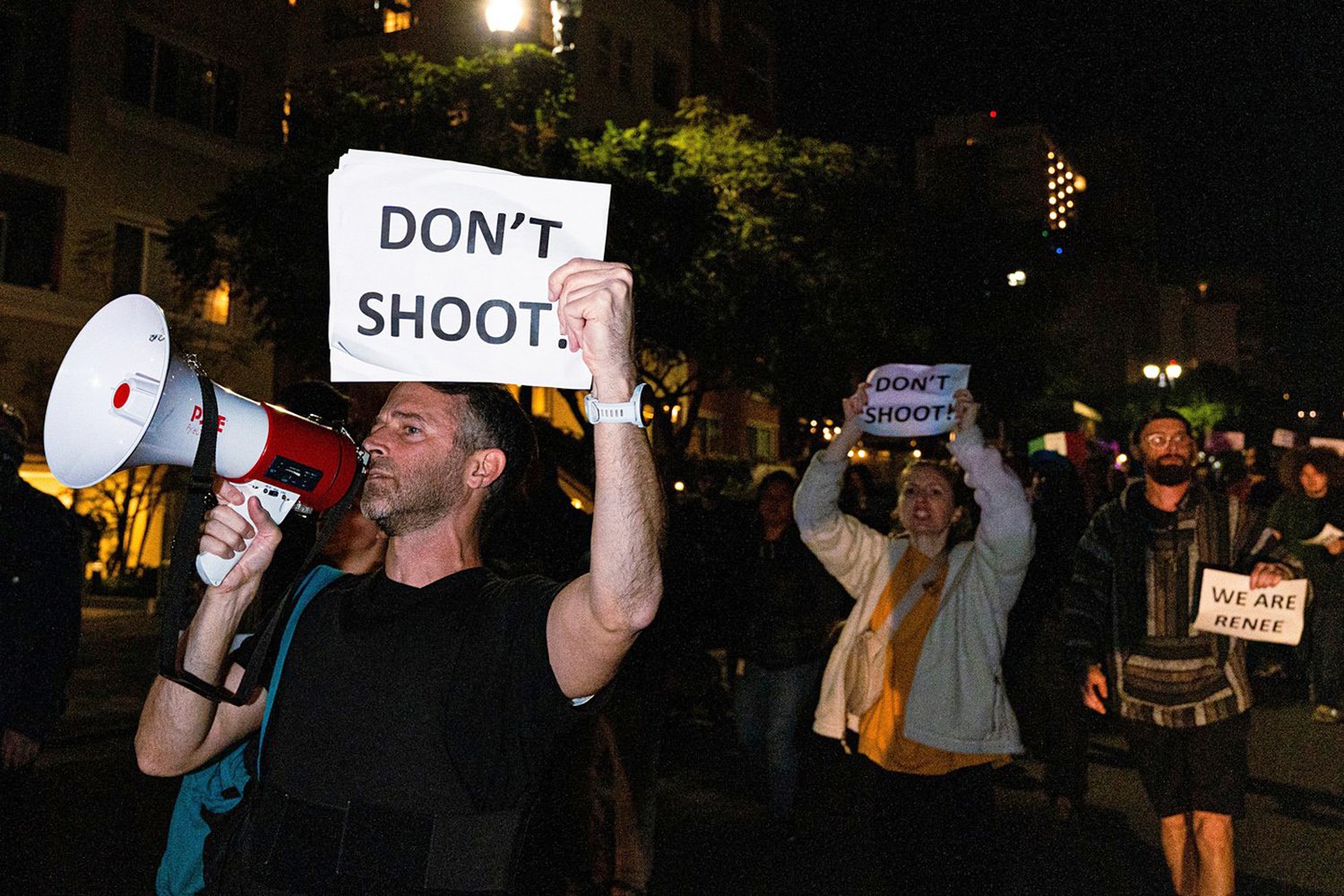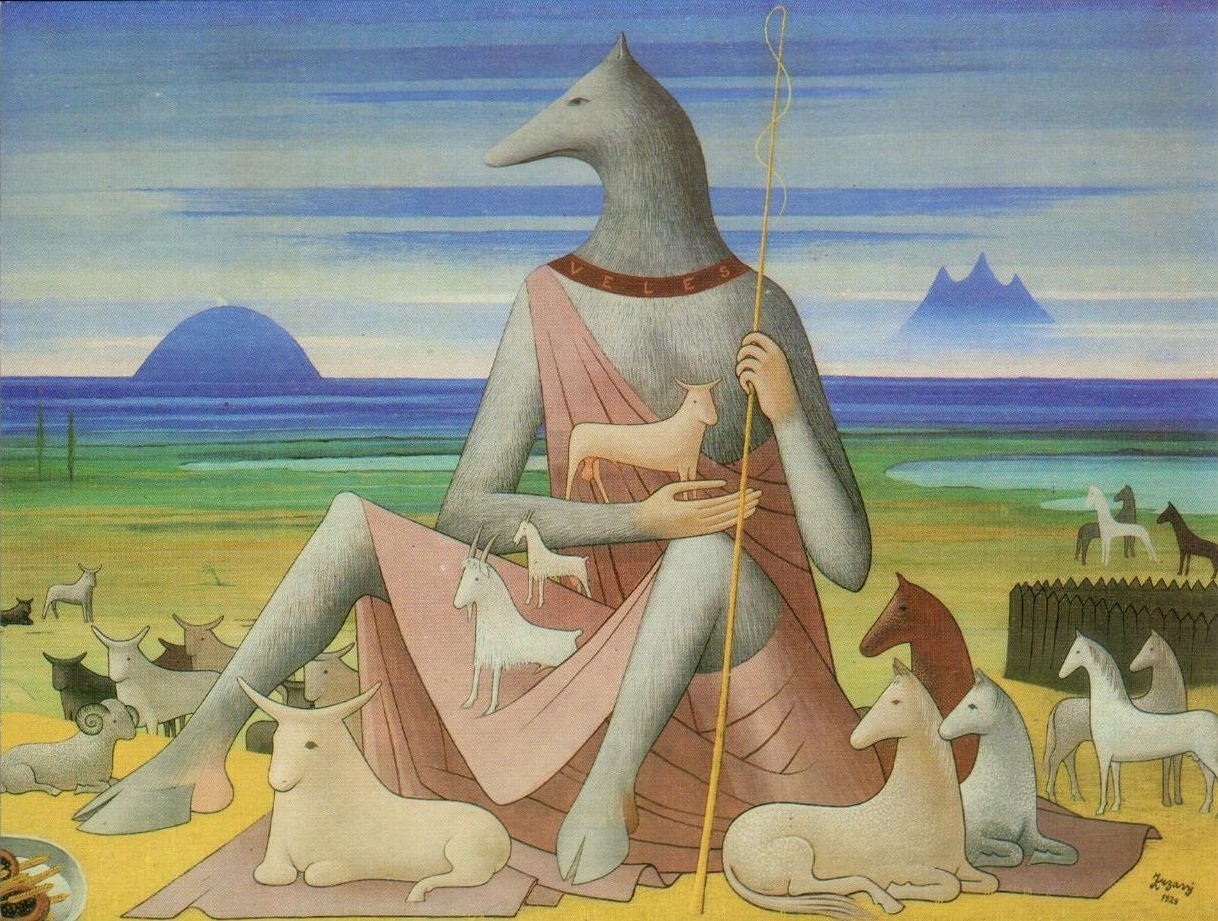A Big Cleanup of the Homeless
Praguers view the homeless as a major problem and have little solidarity with them. That is why Czech politicians make the unwanted people one of their topics in their election campaigns.

He looks like he's crying but those aren't tears in his eyes, it's pus. His swollen red eyes can barely see. His arms are dotted with ulcers, his body is full of scars from falls, kicks and punches. His unwashed body attracts unwelcome attention even from the other homeless people standing in front of Prague's Naděje shelter, near the main train station. He doesn't have the courage to mix with them and prefers to wait impatiently a few meters away.
It is mid-June and Zuzana Kazdová of the Naděje charity is happily greeting this pitiful man. She is delighted that he came. After a year of vain attempts to help him, largely because of his lack of trust, Michal Hanel has come to Naděje of his own free will.
Expel and check
Visibly shabby homeless people have increasingly become a popular topic in election campaigns. As soon as the uproar over the idea of constructing a camp for the homeless on the outskirts of the city, proposed by Civic Democrat (ODS) councilor Jiří Janeček, had faded away, the Social Democratic Party (ČSSD) put up posters around Prague 5 saying: "Away with the addicts and the homeless." Following massive protests from ČSSD leaders not only in Prague but around the country, the Prague 5 faction has promised it will pull the posters.
Interestingly, in less than two weeks, the man who came up with the collection camp idea will launch an international conference on homelessness. The forum will announce official figures for the number of homeless in Prague. The conference's conclusion may not be as appealing as the name of the firm that will carry out the homeless census – the ABL security agency. Until recently, this private company was owned by Transport Minister Vít Bárta (Věci veřejné, VV – Public Affairs). Infamous for its harsh approach to the homeless in Pragues 10 and 11, many people and even police have complained about the agency staff's arrogance: "They often expelled elderly people sitting on benches just because they looked a bit shabby," said Ivana Koerberová, who has responsibility for the homeless in a Prague city police unit. There is speculation in the Czech media that ABL was supposed to handle security services in the collection camp.
Whether the camp will be built or not is currently unclear. Every Prague district council in which the camp could potentially be built is against the idea, as are Boris Šťastný, the ODS chairman in Prague, and Markéta Reedová of Věci veřejné, both of whom are running for mayor in Prague's October elections. Zuzana Kazdová is also strongly against the idea.
If the camp were built, Michal Hanel would be among those who would likely be collected in a minibus and shipped to the camp, says Kazdová, who works with the homeless out in the streets. "This solution would harm these people the most," she says.
Learning fast
It's lunch time and there isn't much time to conduct an interview with Michal Hanel. Shortly after lunch he rushes down Wenceslas Square to meet Hare Krishna followers, the only people who have ever taken him in during his 10 long years on the streets.
Despite being born with a minor mental deficiency, Hanel learned to become a bricklayer. After suffering a head injury at work, however, he began to have spasms which prevented him from doing his job. When he turned 30, his mother moved into a nursing home and he lost the apartment they used to share. "I have lived on the streets for about eight or 10 years," says 40-year old Hanel, dressed in sweat pants and a shirt. "During the day I was begging on and around Wenceslas Square. I mostly made about 350 CZK per day. Then I bought a box of cheap wine and went to spend the night in an abandoned train wagon in Žižkov." His rotten teeth and scarred head are clear evidence of his tough life.
A minor mental handicap, a speech disorder and mobility problems, combined with the harsh reality of life on the streets, have left their mark on Hanel. He has abandoned personal hygiene, and relies on friends to buy food, wine and cigarettes for him because no shop will allow him on its premises. Because of his speech impediment, he was barely able to make himself understood and, eventually, stopped talking altogether.
The police didn't like him being in the Wenceslas Square area, where, since the wagon was towed away, he also slept, so they often took him away in a car and beat him up. "Never, ever come back," they warned him.
But he did. "He was more of an animal, than a man," Kazdová says, describing her first encounter with Hanel. "He didn't speak, he was afraid of people and he was scared of approaching our car, so we had to take the food over to him personally."
He would have probably stayed on the streets if a couple of policemen hadn't tear-gassed him. Having developed an eye infection, Hanel almost lost his sight and finally worked up the courage to see the "food people" in front of the train station.
"It was a tough job," says Radka Pištěková, a social worker at a shelter for senior citizens and handicapped people. In the shelter, whenever Hanel saw food, he grabbed it and devoured it. He also urinated in the corners of rooms and couldn't control his bowels. "But he is learning fast," she added.
Hanel is happy in the shelter. He comes here regularly; the charity staff has secured a monthly living allowance for him and is now trying to find him housing in a shelter for people with minor mental problems.
Not wanted
People like Michal Hanel are often the target of criticism by Praguers. A number of homeless people have drinking problems and are refused entry to downtown shelters because of their alcoholism. They sleep in parks and other public places. "It is a security risk and a bad example for children. On top of that, the aesthetic aspects come to play a role here too –businessmen invest big money in their hotels and restaurants and they don't want to see homeless people hanging around in front of them," says Jiří Janeček, stressing that it would be voluntary to enter the camp.
However, there's a certain degree of coercion in the idea of shipping the "hardcore" homeless out of town in a minibus. To its opponents, the plan is intended to repress people rather than to combat homelessness. Michal Hanel's case clearly shows that building trust and long-term social support can be effective in tackling homelessness.
Some even argue that an isolated place out of town would become a despised ghetto, leaving its inhabitants little hope of reintegrating themselves into society. They would leave the camp to seek occasional jobs and entertainment in downtown Prague anyway, critics say.
"I made a rough estimate of how much all this would cost," says Ilja Hradecký, head of the Naděje shelter and a respected expert on homelessness. "Transport of 300 people in four vans, drivers' wages, security, nurses and social workers, electricity and soup – it all adds up to 10 million CZK. And the result? It will bar the homeless from reintegrating whatsoever."
Stirring up a debate
Janeček's controversial plan has stirred up a debate about the real problem of people without homes. The situation in Prague doesn't appear to be critical. Since the '90s, when numbers grew rapidly, the number of homeless people in Prague is thought to have remained relatively stable, at around 3,000.
With Janeček now in charge of the city's social policy, the collaboration between the city council and non-profit organizations has slowed. But debate about the topic has grown more widespread. On one hand, the city council has opened up a housing project on the Hermes houseboat on the Vltava. The city has also been contributing to Naděje and there are several minor projects around town employing homeless people.
Nonetheless, rejoining society has become much harder. Occasional jobs have become scarce and most employers prefer to hire students rather than the homeless. Homeless people are often in debt, owing money for health and social insurance. Knowing that a large part of their salaries would be consumed by paying off these debts, they aren't exactly eager to find work. "Part of our job is to set up an installment schedule for them with insurance companies," says Pavel Pěnkava, a social worker at Prague 1's office for homeless people.
Affordable housing, other than a bed in a shelter, is hard to find in the capital. Prague has the capacity to cater for its homeless population reasonably well but lacks the cheap social housing needed for integration. In Western Europe and the United States programs offering protected housing help more promising candidates regain their place in society. Of all the mayoral candidates in Prague's upcoming election, only Jiří Dienstbier, Jr. (Social Democrats – ČSSD) has spoken of the need for social housing. Reedová would like to follow Vienna's example, creating an office that would help citizens in critical life situations. The other leaders have offered only empty phrases.
Praguers view homeless people as a major problem and have little solidarity with them, according to a recent survey conducted – to everybody's surprise – by the ABL agency. (Only drug addicts are perceived more negatively.) This explains why politicians make the undesirable homeless one of the topics of their election campaigns. But except for disrespecting the homeless, politicians haven't shown much ingenuity in dealing with the issue.
Edited and translated by Naďa Straková
Pokud jste v článku našli chybu, napište nám prosím na [email protected].

